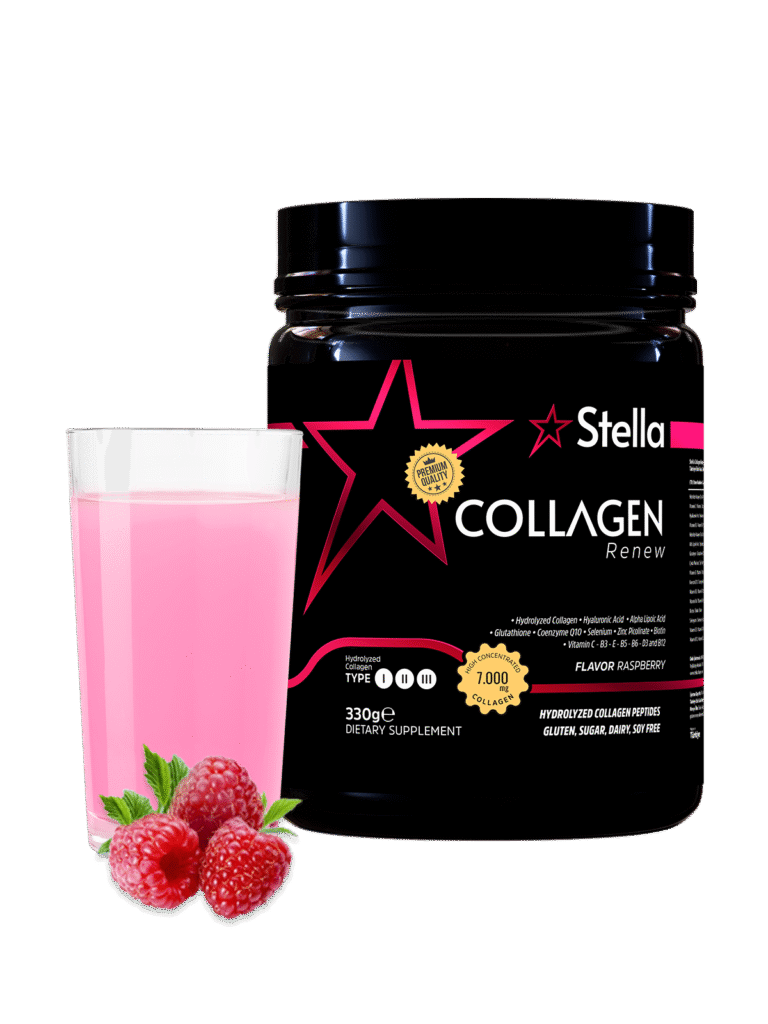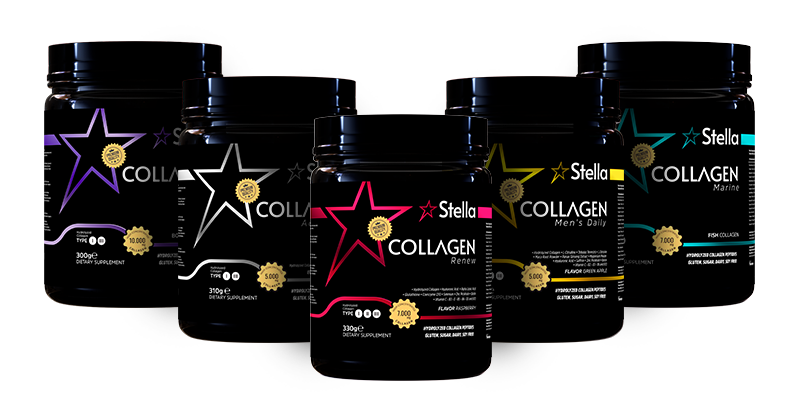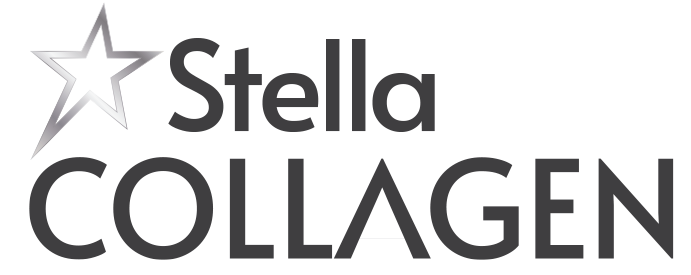Collagen is the most abundant protein in the human body, making up about one-third of the total protein content.
It forms the structural foundation of the skin, bones, muscles, tendons, joints, blood vessels, and connective tissues — in short, it acts as the body’s natural “binding” protein.
Collagen is a long-chain protein composed of amino acids — mainly glycine, proline, and hydroxyproline. These amino acids provide strength, elasticity, and structural integrity to body tissues.
However, collagen production naturally decreases with age due to factors such as stress, sun exposure, smoking, and poor diet. This decline can lead to loss of skin elasticity, wrinkles, joint stiffness, and reduced energy levels.
Collagen supplements — especially in hydrolyzed collagen (collagen peptide) form — are more easily absorbed by the body. This allows visible benefits not only for the skin but also for joints and muscles.


Main Benefits of Collagen
• Supports skin health: Enhances elasticity, helps maintain moisture balance, and reduces the appearance of fine lines.
• Strengthens hair and nails: Promotes keratin production, contributing to stronger and more resilient hair and nails.
• Protects joints: Supports cartilage structure, helping improve flexibility and movement comfort.
• Strengthens muscles and bones: Contributes to protein synthesis and helps maintain muscle mass and bone density.
• Promotes vitality and energy: Supports cellular renewal and overall body balance.
Why Collagen Supplementation Matters
The body naturally produces collagen, but after the age of 25, production decreases by around 1% each year.
This decline not only contributes to visible signs of aging but can also affect joint flexibility and muscle performance.
For this reason, taking collagen supplements regularly helps support the body’s reduced production and maintain the strength and integrity of connective tissues.
Renew with Science — Stella Collagen
Stella Collagen combines the power of collagen with scientifically developed formulations tailored to different needs.
Whether it’s pure hydrolyzed collagen (Stella Collagen Prime) or advanced blends enriched with vitamins and antioxidants (Advanced, Renew, Marine, Men’s Daily) — each product is designed for high bioavailability, quality, and effectiveness.
Rediscover renewal through science with Stella Collagen.
Collagen Types
Accounts for about 90% of the collagen in the human body. Found in skin, bones, tendons, and connective tissues. It is the key type responsible for firmness, elasticity, and overall tissue integrity.
Mainly found in cartilage and essential for joint health. Helps maintain mobility and joint comfort.
Often found alongside Type I collagen. Supports the elasticity of blood vessels, muscles, organs, and skin, playing a complementary role in tissue repair and integrity.

